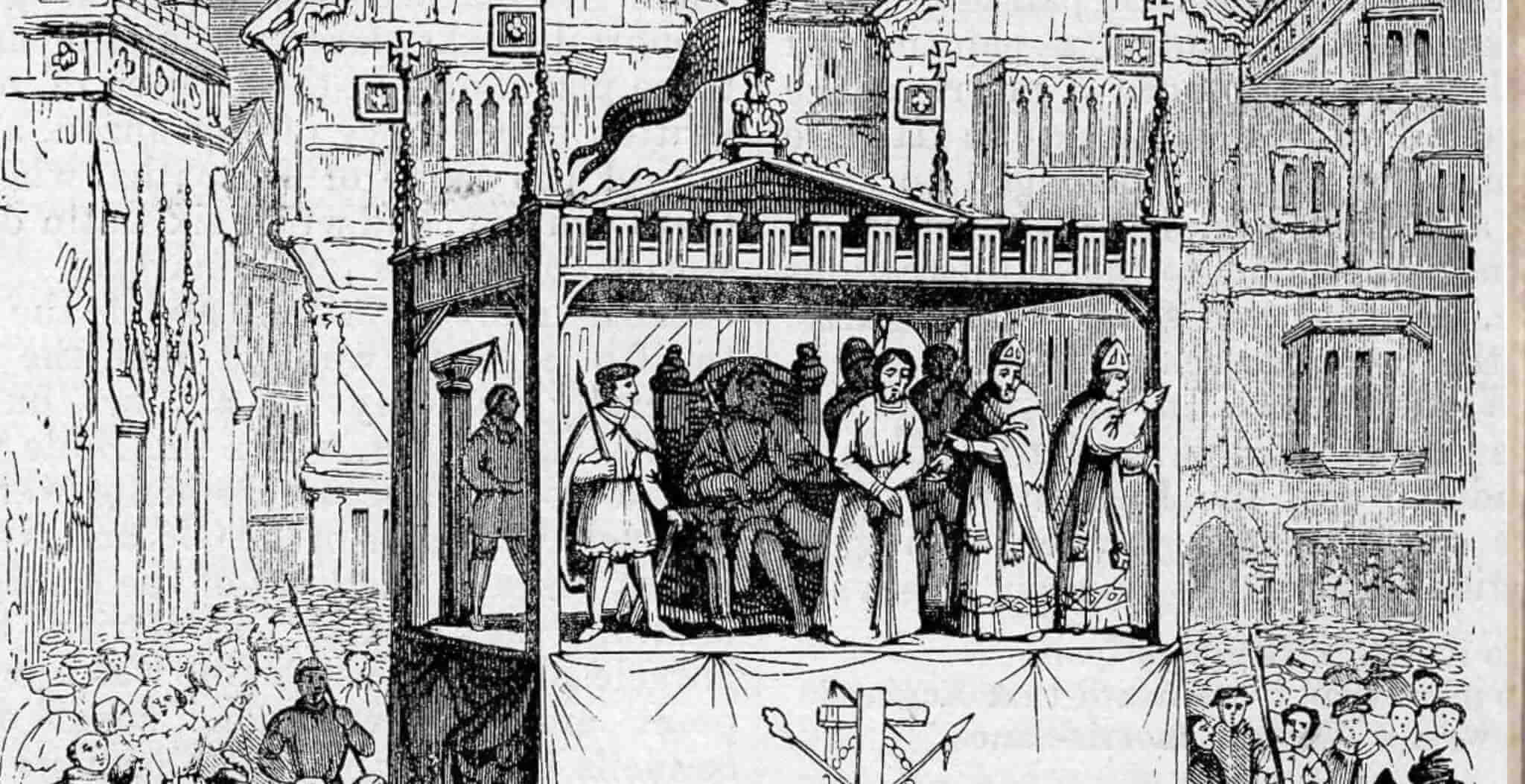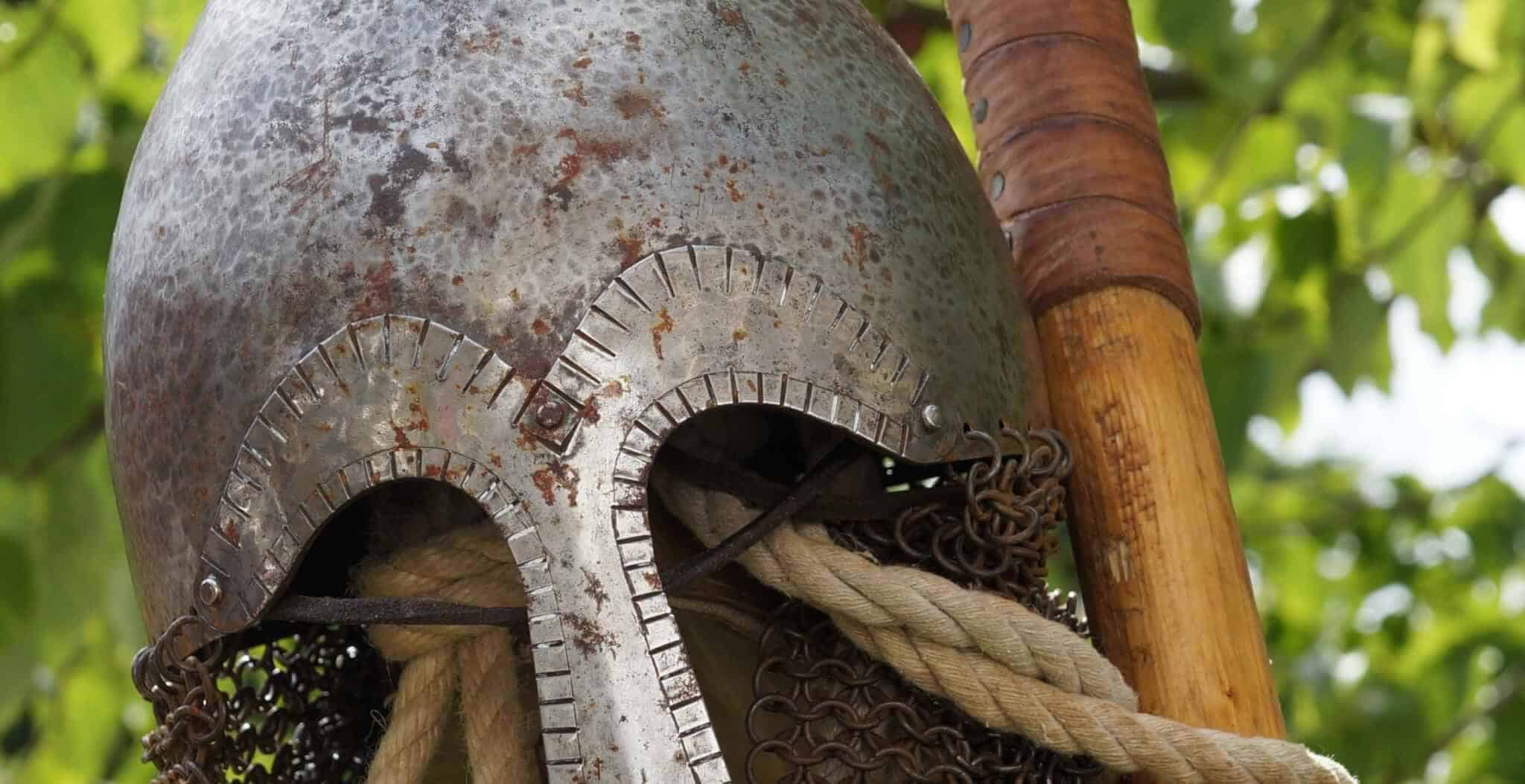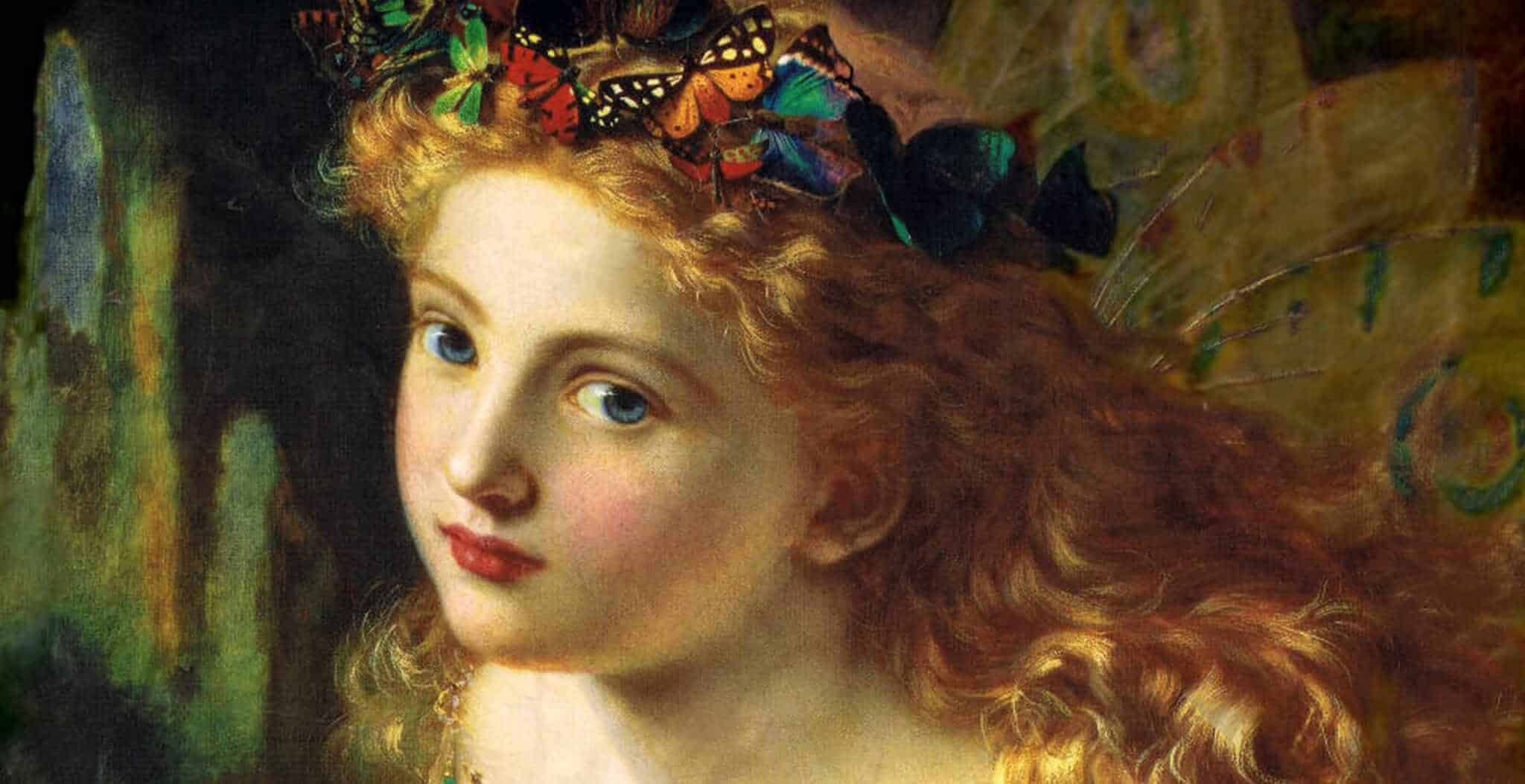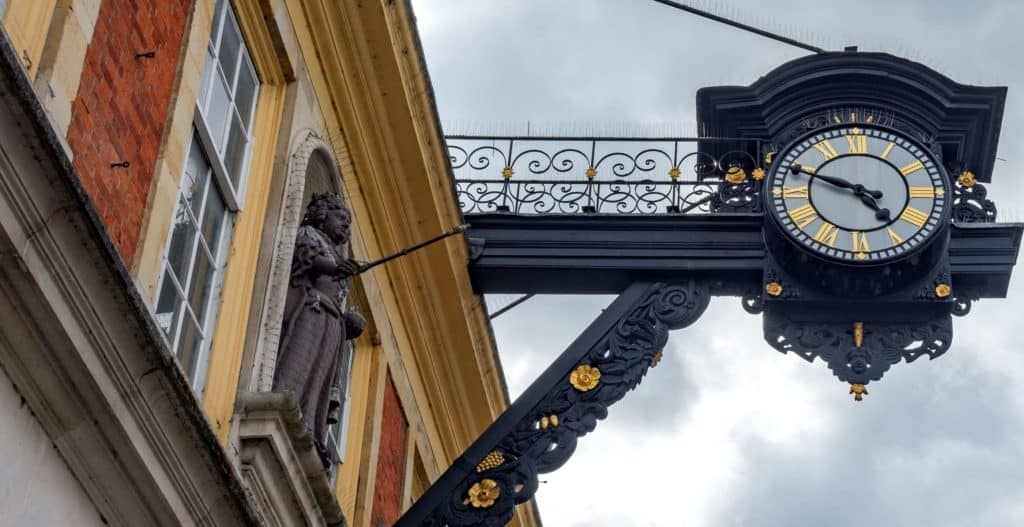First performed almost 700 years ago, Chester’s Mystery Plays originally date back to the 14th century. These series of plays recreate the iconic stories from the Bible, from the Creation with Adam and Eve through the life of Christ to the hell-fire of the Last Judgement. Taken from both the Old and New Testaments they deliver their powerful messages in a dramatic manner, yet studded with humour, music and magic.
As well a delivering their powerful Christian messages in a dramatic and entertaining manner, they also help to capture a snapshot of what life was like back in the 14th century. At that time all church services were conducted in Latin by the learned men of ‘the cloth’, which left the great unwashed a little left out and excluded.
It was the monks at the Abbey of St Werburgh (now Chester Cathedral) who had the bright idea of enacting stories from the Bible to help those who couldn’t otherwise follow or understand. This proved such a crowd pleaser that they were soon packing them in, so much so that eventually this proved too disruptive and the plays had to be moved outside the abbey, at which time the individual companies of Chester Guilds adopted them.
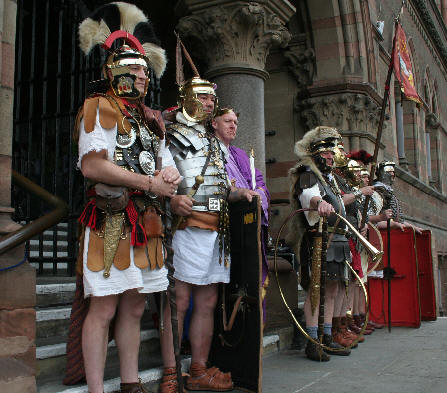
The Freemen and Guilds of Chester were a united group of shopkeepers, trades folk and professionals that had already been in existence for more than 100 years at that time. They represented a powerful force in the city, protecting the interests and welfare of fellow merchants and craftsmen whilst playing a major part in social, political and economic life. Their influence extended to organising major events, one of which became Chester Mystery Plays.
Individual guilds staged the plays on open pageant wagons. For example, the Grocers, Bakers and Millers performed The Last Supper, and the Ironmongers undertook The Crucifixion. Each wagon trundled through the streets to ‘stations’ where the audience gathered. The first station was outside Abbey Gate – audiences today pass through the same place to see the modern version of the plays.
The powerful performance of these plays delivered in a language that all could understand, laced with wit and humour and staged on lavishly decorated wagons, became the highlight of the Feast of Corpus Christi. The event proved so popular that still later, around 1521, it was stretched to cover the three days of Whitsuntide, Whit Monday, Tuesday and Wednesday.
Few town guilds in medieval Britain were so rich and powerful as to be able to afford such pageantry but of those who did, original scripts survive from only five cities, Chester’s being the most comprehensive with a near-complete text of 24 plays. Twenty-three of the ancient company guilds scripts, the originals of which were assembled by monastic scholars at the Abbey of St Werburgh, survive today.

Mary Magdalen and Jesus, CMP 2003 With kind permission & courtesy of Chester Mystery Plays
During the Reformation such plays were considered ‘Popery’ and consequently banned by the new Church of England. Despite this ban, the plays were performed in 1568 and again in 1575. Chester’s major at the time was subsequently summoned to London to explain himself. He escaped punishment and with the support of the council he was freed.
Revived in 1951 for the Festival of Britain, the plays have since been staged every five years on Cathedral Green in the heart of this 2,000-year-old walled city. Next taking place in July 2023, they represent a rare chance to witness the entire unfolding of the greatest story ever told.
Perhaps the best known of the Chester plays is the story of Noah and the Great Flood, traditionally acted by the Drawers of the Dee, otherwise known as the watercarriers. A little on the sexist side perhaps for modern taste, it tells the story of Noah and his sons busy loading the ark whilst his wife is otherwise occupied gossiping to the neighbours. Despite Noah urging her to hurry up she continues to gossip on. Eventually the sons end up carrying her, still gossiping, into the ark and God signals to all with a Rainbow that mankind has suffered enough for its sinful deeds.
Plays as performed by the Freemen & Guilds of Chester in 1540
| Mystery Play | Guilds |
| The Fall of Lucifer | The Barkers and Tanners |
| The Creation of the World | The Drapers and Hosiers |
| Noah and his Ship | The Waterleaders and Drawers in the Dee |
| Abraham and Isaac | The Barber Surgeons and Waxchandlers |
| Balak and Balam | The Cappers, Wiredrawers and Pinners |
| The Nativity | The Wheelrights, Slaters, Tylers, Daubers and Thatchers |
| The Shepherds | The Painters, Glaziers and Embroiderers |
| King Herod (Adoration of the Magi) | The Vintners |
| The Three Kings | The Mercers and Spicers |
| Slaughter of the Innocents | The Goldsmiths and Masons |
| Purification of Our Lady | The Smiths, Forbers and Pewterers |
| The Temptation & Woman taken into Adultery | The Butchers |
| Raising of Lazarus | The Glovers and Parchment-makers |
| The Coming of Christ to Jerusalem | The Corvisars |
| The Last Supper | The Grocers, Bakers and Millers |
| The Scourging of Christ | The Bowyers, Fletchers, Stringers, Coopers and Turners |
| The coming of the Antichrist | The Dyers |
| The Crucifixion | The Ironmongers and Ropers |
| Harrowing of Hell | The Cooks, Tapsters, Ostlers and Innkeepers |
| The Resurrection | The Skinners, Plastercard-makers, Hatters, Painters and Girdlers |
| Castle of Emmaus & the Apostles | The Saddlers |
| The Ascension | The Tailors |
| Whitsunday Making of the Creed | The Fishmongers |
| Prophets before the Day of Doom | The Shermen |
| Antichrist | The Hewsters and Bellfounders |
| The Last Judgement | The Weavers and Walkers |
Published: 17th June 2015
